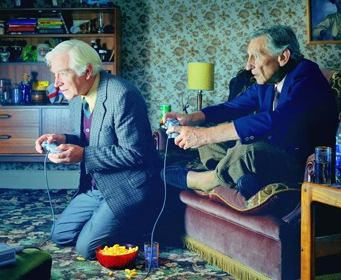Gaming for life takes serious turn
One of the most common interactions from modern parents to their kids’ involves the amount of time they spend staring at a screen, but new research suggests in the future that may be the way to stay on the ball.

A study to be published this week from the University of California has shown that older adults are able to improve their skills in multi-tasking and attention by playing a specially-designed videogame. Surprisingly, not only did researchers find measurable improvements through gaming, the effects lasted a considerable time after.
The study is part of a broad look into using videogames to treat neurological conditions like attention-deficit hyperactivity disorder and even depression. Some researchers even believe videogames may one day replace or be combined with ingestible medications.
With many under the impression that the adult brain is static, set in its ways, the new study “is a powerful example of how plastic the older brain is,” said Adam Gazzaley, a director of the UCSF Neuroscience Imaging Center and a co-author of the report.
The study saw participants learn and play a game called “NeuroRacer” over the course of a month. The game was made to add extra challenges to a traditional race and evolve with the player’s ability, to maintain a constant level of difficulty.
The study found that after some practice, people in the 60 to 85 years age bracket were able to outperform untrained 20-year-olds. The positive effect of the training was also observed to last over six months for some participants.
The researchers wrote that their findings are the first evidence that a custom-designed videogame can serve “as a powerful tool for cognitive enhancement.”
One 65-year-old participant in the study said prior to NeuroRacer, she had difficulty focusing and often forgot the purpose behind her actions. At first, she found the game very frustrating but after several hours, “something snapped.”
Eventually, the game felt easier, and she noticed that real life tasks also became easier to manage.
“I feel like my brain is working better– even if it’s just to drive a car in a videogame,” the participant said.
“There’s always the potential for good and bad,” said Gazzaley, “this research shows that videogames can be quite serious.”








 Print
Print